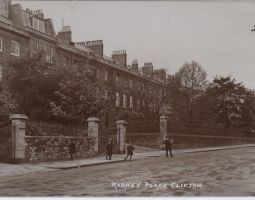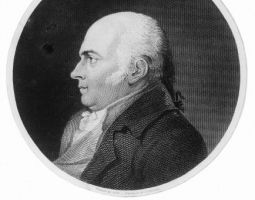Thomas Beddoes lived here after his marriage to Anna Edgeworth. Beddoes was a physician who had a wide knowledge of European science and had been forced to relinquish his Fellowship at Oxford due to his republicanism and atheism. The scientific library at Rodney Place was probably the most up-to-date one in the west and contained over a thousand books. From 1794, Beddoes printed pamphlets to encourage financial and medical support for his pathological research through the Bristol publisher Cottle. In 1798, Beddoes set up the Pneumatic Institute, a radical centre for free public medicine. Beddoes continued to publish through Cottle: the yearly Contributions to Physical and Medical Knowledge, principally in the West of England included Davy’s first essays on chemistry, heat and light.
At Rodney Place, Dr Beddoes hosted many gatherings of literary society - Beddoes had met Coleridge, Southey and Lovell in 1795, and the three were frequent guests. The novelist and sister-in-law of Dr Beddoes, Maria Edgeworth, often stayed. Their son, Romantic poet Thomas Lovell Beddoes, was born here in 1803. Humphry Davy, scientist and poet, visited Bristol in October 1798 and stayed here with Beddoes. Davy wrote to his mother of Clifton: 'commanding a view of Bristol and its neighbourhood, conveniently elevated above the dirt and noise of the city. Here are houses, rocks, woods, town and country all in one small spot; and beneath us, the sweetly flowing Avon, so celebrated by the poets. Indeed there can hardly be a more beautiful spot, it nearly rivals Penzance, and the beauties of Mount's Bay'. Davy then moved into Dowry Square in early 1799.


